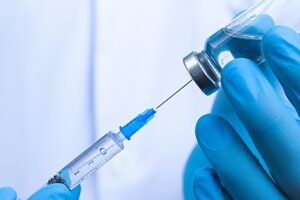Shire has secured a label expansion from the US Food and Drug Administration (FDA) for its hereditary angioedema (HAE) therapy Cinryze to help prevent angioedema attacks in HAE-affected children, aged 6 years and older.
Subscribe to our email newsletter
 Since October 2008, the C1-Esterase inhibitor (C1-INH) has been approved in the US for routine prophylaxis against angioedema attacks in adolescents and adults with HAE.
Since October 2008, the C1-Esterase inhibitor (C1-INH) has been approved in the US for routine prophylaxis against angioedema attacks in adolescents and adults with HAE.
Cinryze’s latest approval was driven by the findings of a phase 3 single-blind trial, 0624-301 that assessed the drug in 12 HAE patients, aged 7 to 11.
Shire said that compared to the baseline observational period, the mean reduction shown in the normalized number of attacks for Cinryze 500 U and Cinryze 1,000 U was 71.1% and 84.5%, respectively.
The company revealed that the two doses reduced the severity of attacks and had brought down the use of acute treatment compared to baseline.
Shire executive vice president and research and development head Andreas Busch said: “Symptoms of HAE often present in childhood with the average child experiencing their first HAE attack around the age of 10.6.
“With the FDA label expansion of Cinryze, children as young as 6 years old living with HAE now have the first FDA approved treatment option available to help prevent attacks.”
According to Shire, C1-INH, a protease inhibitor is the active substance in Cinryze, which increases plasma levels of C1-INH in HAE patients, who are prone to swelling caused by an underlying deficiency in C1-INH.
The Irish firm said that treatment with C1-INH addresses the basic cause of HAE by replacing the deficient protein in addition to helping in controlling the production of bradykinin released during an attack.
In March 2017, the European Commission (EC) had approved Cinryze’s label extension application, granting three new indications for the drug to expand its coverage to treat children with HAE.
Cinryze was originally developed by ViroPharma, which was acquired by Shire for $4.2bn in 2013.
Image: Cinryze is an injectable prescription medicine used to help prevent swelling and/or painful attacks in teenagers and adults with HAE. Photo: courtesy of Mister GC/FreeDigitalPhotos.net.
 Advertise With UsAdvertise on our extensive network of industry websites and newsletters.
Advertise With UsAdvertise on our extensive network of industry websites and newsletters.
 Get the PBR newsletterSign up to our free email to get all the latest PBR
news.
Get the PBR newsletterSign up to our free email to get all the latest PBR
news.

